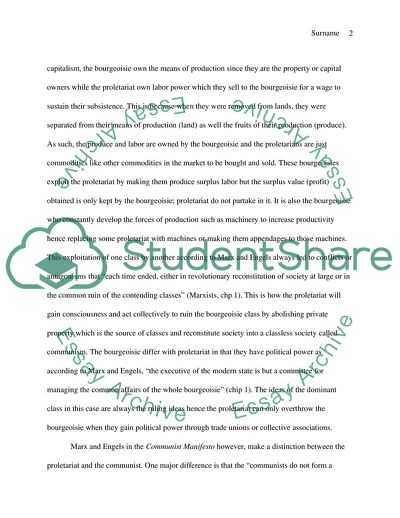Cite this document
(Review of Communist Manifesto by Marx and Engels Essay Example | Topics and Well Written Essays - 1500 words, n.d.)
Review of Communist Manifesto by Marx and Engels Essay Example | Topics and Well Written Essays - 1500 words. https://studentshare.org/politics/1823347-marx-engels-and-michel-foucault
Review of Communist Manifesto by Marx and Engels Essay Example | Topics and Well Written Essays - 1500 words. https://studentshare.org/politics/1823347-marx-engels-and-michel-foucault
(Review of Communist Manifesto by Marx and Engels Essay Example | Topics and Well Written Essays - 1500 Words)
Review of Communist Manifesto by Marx and Engels Essay Example | Topics and Well Written Essays - 1500 Words. https://studentshare.org/politics/1823347-marx-engels-and-michel-foucault.
Review of Communist Manifesto by Marx and Engels Essay Example | Topics and Well Written Essays - 1500 Words. https://studentshare.org/politics/1823347-marx-engels-and-michel-foucault.
“Review of Communist Manifesto by Marx and Engels Essay Example | Topics and Well Written Essays - 1500 Words”. https://studentshare.org/politics/1823347-marx-engels-and-michel-foucault.


